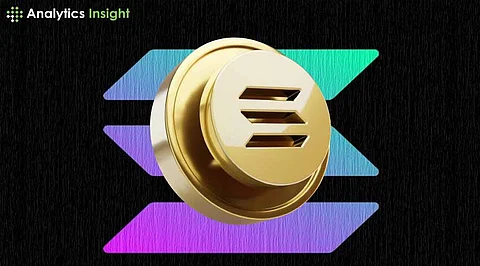

The blockchain ecosystem is abuzz with excitement as Ethereum and Solana engage in a spirited contest. As the OG decentralized application platform, Ethereum has set the bar high. Solana, however, has been making waves with its blistering performance and budget-friendly approach. As the dust settles, one question remains: can Solana maintain its remarkable trajectory and pose a credible threat to Ethereum's throne?
Both Ethereum and Solana envision the construction of decentralized ecosystems catering to multiple needs in finance or entertainment. However, the divergent paths for the two ecosystems are tremendous. While Ethereum emphasizes creating a friendly developer-to-platform system with robust security, Solana distinguishes itself as quick and cost-effective, relying on proof-of-history technology.
These opposing visions have developed into their strengths. Ethereum, evolving slowly and steadily, has only recently transitioned to a proof-of-stake (PoS) system, which prioritizes dependability. Solana wins games with its fast transactions and low fees but stumbles with maintaining consistent reliability.
When speed is the goal, Solana has a lot of ground to make up for it. As it can process thousands of TPS, Solana was built for applications that need quick processing, like a trading platform. In comparison, 15 TPS, Ethereum's current capacity, is a bottleneck. Still, some of Ethereum's upgrades will be sharding and layer-2 solutions.
For now, Solana’s speed is a competitive advantage, but Ethereum’s planned developments could help it close the gap soon.
Solana’s appeal also lies in its minimal transaction fees, usually less than a penny. Given these prices, users who frequently engage in DeFi applications or microtransactions may be drawn to use it more. On the other hand, Ethereum has struggled with high gas fees, often surpassing $10 during peak times. Despite being highly energy efficient following a change to PoS operations, the platform cost hasn't changed for much improvement.
While a pioneer, Ethereum could give the whole world an opportunity to see this vast space. For now, Ethereum is indeed reigning supreme in the DeFi space, with more than 1 million validators and exceeding the value locked at $44.5 billion. That also creates a strong network among developers, tools, and dApps.
Although Solana is younger, it grows faster. At $4 billion TVL, the platform attracts more new projects. Its low fees and high speed facilitate easy entry, increasing developers' participation in the ecosystem. Nevertheless, Ethereum's maturity and high penetration still keep it in the lead.
Despite its excellent performance metrics, Solana has faced reliability issues due to occasional network outages. Stability concerns will be key to its long-term success.
Ethereum is more stable but needs to scale without compromising security or decentralization. Its efforts, such as sharding and layer-2 integrations, are crucial to its competitiveness in the evolving blockchain space.
For investors, the choice between Solana and Ethereum comes from risk appetite and long-term goals. Ethereum's market cap of over $435 billion offers stability, making it a safer bet for those seeking reliability. With a market cap of approximately $105 billion, Solana presents higher growth potential but also comes with higher risks, especially given its network concerns.
Many savvy investors prefer diversification, considering the specific strengths of both networks. The established ecosystem with a reputation always brings steady growth opportunities, while Solana offers an exciting prospect in emerging use cases due to its speed and affordability.
Thanks to its innovative approach and rapid expansion, Solana continues to be a viable competitor to Ethereum. However, its future success depends on resolving reliability issues and further maturing its ecosystem. As Ethereum rolls out its scaling solutions, the rivalry will intensify. For now, both platforms bring unique value to the table, ensuring that competition drives progress in the blockchain world.
